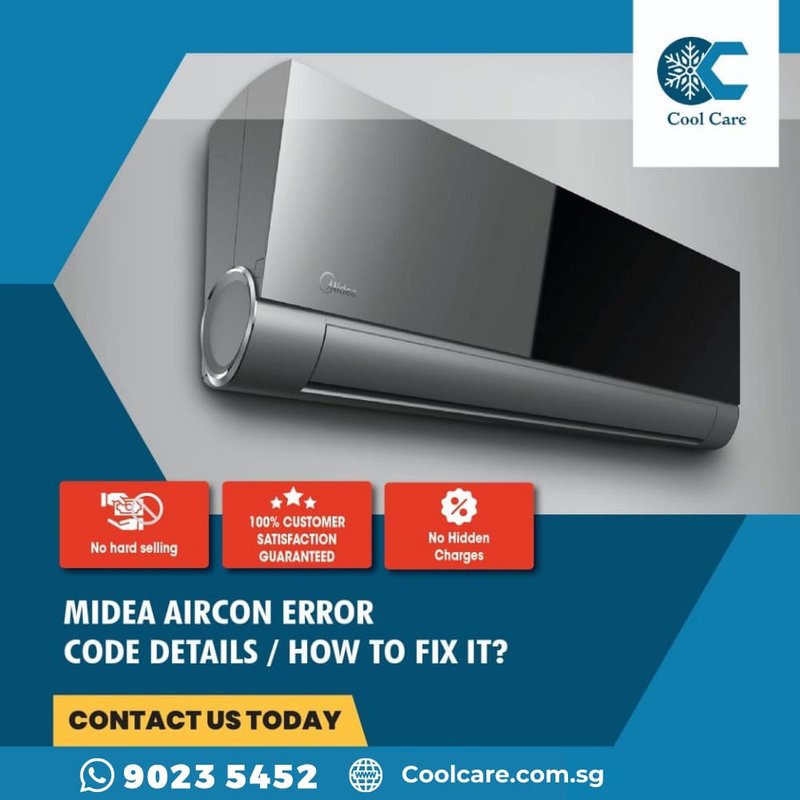
So, what exactly is error code E3? Simply put, it’s the air conditioner’s way of telling you there’s an issue with the fan motor. Just like a car needs a functioning engine to get moving, your air conditioner needs its fan to circulate cool air throughout the room. Without it, your unit can’t do its job effectively. Thankfully, with a little knowledge and a few preventative measures, you can keep error code E3 at bay and ensure your air conditioner runs smoothly.
Understanding Error Code E3 and Its Causes
First things first, let’s dive deeper into what makes this error code tick. When your Midea air conditioner displays an E3 error, it’s essentially sounding an alarm that there’s a problem with the fan motor—specifically, the feedback signal from the fan isn’t what the system expects. Imagine trying to whistle a tune, but you keep running out of breath. Your air conditioner’s fan motor can face similar hiccups if not cared for properly.
The common causes of this issue revolve around either mechanical faults or electrical snags. For instance, the fan blades might be obstructed by debris or dust, akin to leaves clogging a gutter, preventing water from flowing freely. Alternatively, the fan motor itself might be worn out, struggling like an old car engine trying to climb a steep hill. Electrical issues, such as faulty wiring or a malfunctioning PCB (Printed Circuit Board), can also trip this error, making the fan motor unable to perform its duties.
To tackle error code E3 before it even rears its head, it’s crucial to understand these root causes. By keeping tabs on both the mechanical and electrical health of your AC, you can minimize the chances of encountering this pesky error.
Routine Maintenance: Your Best Defense
Here’s the deal: regular maintenance is your air conditioner’s best friend. Just like changing the oil in your car or updating software on your computer, keeping your AC in top shape requires consistent attention. But you might be wondering, “What does routine maintenance involve?”
Start with the basics: regularly clean or change the air filters. Over time, these filters can become clogged with dust and debris, restricting airflow much like a blocked straw. A clean filter not only ensures smooth operation but also promotes better air quality. Aim to check and clean these filters every month, especially during peak usage seasons.
Next, give your unit some breathing room by inspecting the fan blades and ensuring they’re free from dust and obstructions. Think of it like brushing leaves off your car windshield. You wouldn’t drive with blocked vision, right? Similarly, your AC needs clear pathways to function optimally. Use a soft cloth or brush to gently clean the blades and surrounding areas, ensuring everything is spick and span.
Don’t forget to examine the electrical components. Checking for any loose wires or signs of wear and tear on the PCB can save a lot of headaches down the road. If you’re not confident in handling these yourself, it might be worth calling in a professional technician to give your AC a yearly check-up. This way, you catch potential issues before they snowball into something more serious.
Smart Usage Practices for Longevity
So, what else can you do besides maintenance to prolong the life of your AC and prevent error code E3? Smart usage is key! Imagine your air conditioner as an athlete. If pushed too hard without proper breaks, it’s bound to experience burnout. Here’s how you can be a mindful coach to your appliance.
First, set reasonable temperature levels. Cranking your AC to its lowest setting might feel tempting on a scorching day, but it’s like running a marathon at full speed from the get-go. Instead, aim for a moderate temperature that keeps you comfortable without overloading the system. This not only extends the life of your unit but also saves on energy bills.
Secondly, give your AC some downtime. Continuous, nonstop use can wear out the fan motor faster. Turn off the unit when you’re not in the room or opt for energy-saving settings that offer the perfect balance between comfort and efficiency.
Lastly, make use of additional cooling methods, such as ceiling fans or shades, to complement your AC’s efforts. Think of them as team players supporting the star athlete. By sharing the cooling load, you reduce the strain on your air conditioner, allowing it to perform better and longer.
When to Call a Professional
There are times when, despite your best efforts, error code E3 might still pop up. It’s like trying to fix a leaky faucet with just a band-aid—it might hold for a bit, but a professional touch ensures a long-term solution. But how do you know when it’s time to call in the experts?
If you’ve gone through the routine maintenance checklist and ensured smart usage practices without success, it’s a sign that the problem might be deeper, potentially involving intricate parts like the PCB or internal wiring. It’s like when your smartphone freezes despite multiple resets. At that point, expert assistance is invaluable.
Moreover, if the air conditioner starts making unusual noises, emitting strange smells, or the error code persists despite your troubleshooting, these are red flags signaling deeper mechanical issues. A certified technician can accurately diagnose the problem, providing the necessary repairs or part replacements to get your unit back in top form.
In the end, being proactive about maintaining your Midea air conditioner can save you a lot of hassle and ensure you enjoy uninterrupted comfort. Just remember—regular maintenance, smart usage, and knowing when to seek professional help are your trifecta for peace of mind and a cool, comfortable home!